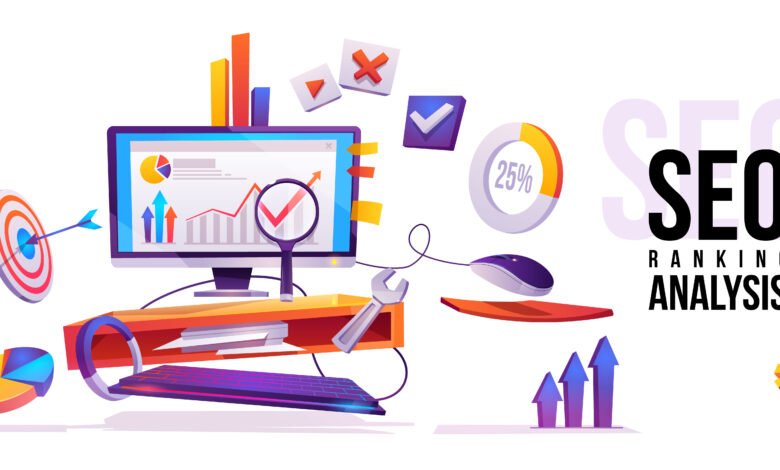How to Get on First Page of Google Search David Aziz A Comprehensive 2025

Getting your website to the How to Get on First Page of Google Search David Aziz results is the ultimate goal for anyone looking to increase their online visibility. Whether you’re a business owner, blogger, or digital marketer, ranking on the first page can drive massive traffic and boost credibility. In this guide, we’ll explore expert strategies to help you achieve top rankings on Google.
Understanding Google’s Ranking Factors
Google uses complex algorithms to determine which pages appear first in search results. To optimize your website effectively, you must understand the key factors that influence rankings:
- Relevance – Google prioritizes content that matches search intent.
- Authority – Websites with strong backlinks and domain authority rank higher.
- User Experience (UX) – Fast-loading, mobile-friendly, and easy-to-navigate sites perform better.
- Content Quality – High-quality, well-structured, and informative content ranks higher.
- Technical SEO – Proper site structure, meta tags, and schema markup improve rankings.
Mastering these factors will set the foundation for getting your site to the first page of Google.
Conducting Effective Keyword Research
Keywords are the foundation of SEO. Without proper keyword research, ranking on Google can be a challenge. Follow these steps to find the right keywords:
- Use Keyword Research Tools – Tools like Google Keyword Planner, Ahrefs, and SEMrush help identify high-traffic, low-competition keywords.
- Analyze Competitors – Check what keywords your competitors are ranking for and find gaps you can target.
- Focus on Long-Tail Keywords – Phrases like “how to get on the first page of Google fast” are easier to rank for and attract more targeted visitors.
- Check Search Intent – Ensure the keywords you target match the intent behind the search query (informational, transactional, or navigational).
Using the right keywords strategically in your content will significantly boost your chances of ranking higher.
Creating High-Quality, SEO-Optimized Content

Content is king when it comes to SEO. Google prioritizes websites that offer valuable, informative, and engaging content. Follow these best practices:
- Write for Humans First, Search Engines Second – Content should be natural, easy to read, and provide real value.
- Use Proper Formatting – Headings (H1, H2, H3), bullet points, and short paragraphs improve readability.
- Incorporate Keywords Naturally – Place your primary keyword in the title, introduction, subheadings, and throughout the content without keyword stuffing.
- Include Visuals – Images, videos, and infographics enhance user engagement and dwell time, which positively impacts rankings.
- Update Content Regularly – Fresh content ranks better, so keep your articles updated with new information.
Creating compelling content that aligns with user intent will keep visitors engaged and improve your rankings.
On-Page SEO Techniques to Boost Rankings
On-page SEO refers to optimizing elements on your website to improve rankings. Here are key tactics:
- Optimize Title Tags & Meta Descriptions – Write compelling, keyword-rich titles and descriptions that encourage clicks.
- Use Header Tags Correctly – Structure your content with H1, H2, and H3 tags to improve readability and SEO.
- Internal Linking – Link to other relevant pages on your website to improve navigation and distribute link authority.
- Optimize Images – Use alt text and compress images for faster loading speeds.
- Improve URL Structure – Keep URLs short, descriptive, and keyword-rich (e.g., example.com/first-page-google-tips).
Following these on-page SEO strategies will improve your site’s relevance and ranking potential.
Building High-Quality Backlinks for Authority
Backlinks (links from other websites to yours) are a major ranking factor. The more high-quality backlinks you have, the better your authority. Here’s how to build them:
- Guest Posting – Write high-value content for reputable websites in your industry and include a link back to your site.
- Create Shareable Content – Publish original research, infographics, and in-depth guides that others want to link to.
- Use HARO (Help a Reporter Out) – Respond to journalists’ requests to get featured in major publications.
- Broken Link Building – Find broken links on authoritative sites and suggest your content as a replacement.
- Engage in Online Communities – Participate in forums, social media groups, and Quora by providing valuable insights and linking back to your site where relevant.
Earning high-quality backlinks takes time, but it significantly boosts your site’s authority and rankings.
Technical SEO for Better Indexing & Performance
Technical SEO ensures that search engines can crawl, index, and understand your website properly. Focus on these areas:
- Improve Site Speed – Use tools like Google PageSpeed Insights to optimize loading times.
- Ensure Mobile-Friendliness – Google prioritizes mobile-optimized sites. Use responsive design and test on various devices.
- Fix Crawl Errors – Use Google Search Console to identify and resolve indexing issues.
- Implement Schema Markup – Structured data helps Google understand your content and improves rich results.
- Use an SSL Certificate – Secure your site with HTTPS for better rankings and user trust.
A technically optimized website enhances user experience and improves rankings on Google.
Monitoring & Analyzing SEO Performance
SEO is an ongoing process, and tracking your progress is essential. Use these tools:
- Google Analytics – Track traffic, bounce rates, and user behavior.
- Google Search Console – Monitor search performance, keyword rankings, and indexing issues.
- Ahrefs or SEMrush – Analyze backlinks, competitor performance, and keyword positions.
- Heatmaps & User Behavior Tools – Tools like Hotjar help you understand how users interact with your site.
Regularly reviewing your SEO performance allows you to refine your strategies and improve your rankings over time.
Conclusion
Getting on the first page of Google isn’t an overnight process, but with the right strategies, it’s absolutely achievable. By focusing on high-quality content, keyword optimization, on-page SEO, backlinks, technical SEO, and continuous monitoring, you can improve your rankings and drive more organic traffic.
David Aziz and other SEO experts emphasize consistency, patience, and adapting to Google’s ever-evolving algorithms. Implement these expert tips, and you’ll be well on your way to reaching the coveted first page of Google search results!
